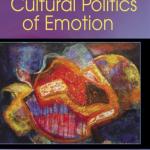Are all religions the same? Last week religion professor Stephen Prothero published an article in the Boston Globe arguing that “it is misleading — and dangerous — to think that religions are different paths to the same wisdom.” (HT Rod Dreher). An excerpt:
To claim that all religions are basically the same, therefore, is not to deny the differences between a Buddhist who believes in no god, a Jew who believes in one God, and a Hindu who believes in many gods. It is to deny that those differences matter, however. From this perspective, whether God has a body (yes, say Mormons; no, say Muslims) or whether human beings have souls (yes, say Hindus; no, say Buddhists) is of no account because, as Hindu teacher Swami Sivananda writes, “The fundamentals or essentials of all religions are the same. There is difference only in the nonessentials.” This is a lovely sentiment but it is untrue, disrespectful, and dangerous.
Prothero makes several good points. To deny that there are serious, fundamental differences between religions takes away the beauty and uniqueness of each of them. But he seems to miss out on the fact that whether the fundamentals of all religions are the same depends entirely on what you consider to be fundamental – and that itself depends on your religious viewpoint.
The Writings for the New Church certainly don’t claim that all religions are the same. Even in heaven, there is diversity based on religion. Last Judgment n. 50 says,
Most of [the good Muslim spirits], when instructed, receive faith in the Lord, and acknowledge Him to be one with the Father. Communication is also granted them with the Christian heaven, by influx from the Lord; but they are not commingled with it, because religion separates them.
There are serious differences between the religions, so that they do not even mingle after death.
But the Writings do say that all religions can lead to heaven. Divine Providence n. 326 says,
To acknowledge God and to refrain from doing evil because it is against God are the two things which make religion to be religion. …. It has been provided by the Lord that almost everywhere there should be some form of religion, and that in every religion there should be these two principles; and it has also been provided by the Lord that everyone who acknowledges God and refrains from doing evil because it is against God should have a place in heaven.
In his article, Prothero points out that not all religions believe in God, Buddhism being the most notable exception. I’m not sure what to make of Buddhism, but it does encourage morality as something more than simply a human creation. Divine Providence n. 254 says,
There are a few who are totally ignorant of God. If these have lived a moral life they are instructed by angels after death and receive in their moral life something spiritual.
Do Buddhists fall into this category of those “totally ignorant of God”? Maybe so. Or maybe we should not consider Buddhism a religion (and many do instead call it a “spiritual philosophy”).
But we can clearly see here Prothero’s point, that Buddhism is fundamentally different from, say, Islam, which stresses that there is a God, and that He is one.
But Prothero does not just say that religions are fundamentally different – he says that it is wrong to say they all lead to the same place. And here I think he’s getting into territory beyond what he’s actually able to say. He makes the very good point that not all religions want to go to the same place. They all have in common that they see problems in the way the world is; but the solution they seek, and the means to the solution, vary, and sometimes are diametrically opposed:
In Confucianism, the rules and rituals of ancient Chinese civilization foster the religious goal of social harmony. But according to Daoists, these very rules and rituals cause the human problem of lifelessness. Civilization is a vampire, Daoists claim, sucking the life out of us, depleting our qi (vital energy), and taking us to an early grave. The only way to pursue the Daoist goal of fostering life is to live in harmony with the naturalness, simplicity, and spontaneity of what Daoists call the Way.
The goal of all religions is not salvation; that is a uniquely Christian goal. Prothero writes:
There is a long tradition of Christian thinkers who assume that salvation is the goal of all religions and then argue that only Christians can achieve this goal. Philosopher of religion Huston Smith, who grew up in China as a child of Methodist missionaries, rejected this argument but not its guiding assumption. “To claim salvation as the monopoly of any one religion,” he wrote, “is like claiming that God can be found in this room and not the next.” It might seem to be an admirable act of empathy to assert that Confucians and Buddhists can be saved. But this statement is confused to the core, since salvation is not something that either Confucians or Buddhists seek. Salvation is a Christian goal, and when Christians speak of it, they are speaking of being saved from sin. But Confucians and Buddhists do not believe in sin, so it makes no sense for them to try to be saved from it. And while Muslims and Jews do speak of sin of a sort, neither Islam nor Judaism describes salvation from sin as its aim.
And here’s where I think Prothero falls down. Because what Huston Smith wrote makes perfect sense from the perspective of a believing Christian. I’m aware that Buddhists think and hope that they will be born again in various forms until they reach Nirvana, whereas many Jews believe that there is no afterlife at all. But I think they’re wrong. I believe that a person will either end up in heaven or in hell. It is not “confused to the core” to hope that a Buddhist will be saved from their sin and live forever in heaven – I know that’s not what they expect or are aiming for, but I believe that that’s where eternal happiness lies.
Now, it’s important to know that the different religions have different goals. Prothero’s absolutely right that we shouldn’t gloss over those differences, and that they do have real-world consequences. But a person cannot objectively determine whether all religions have enough of the “basic truth” that a person needs to reach eternal happiness. Whether other religions have enough of these basic truths is itself a religious belief.















